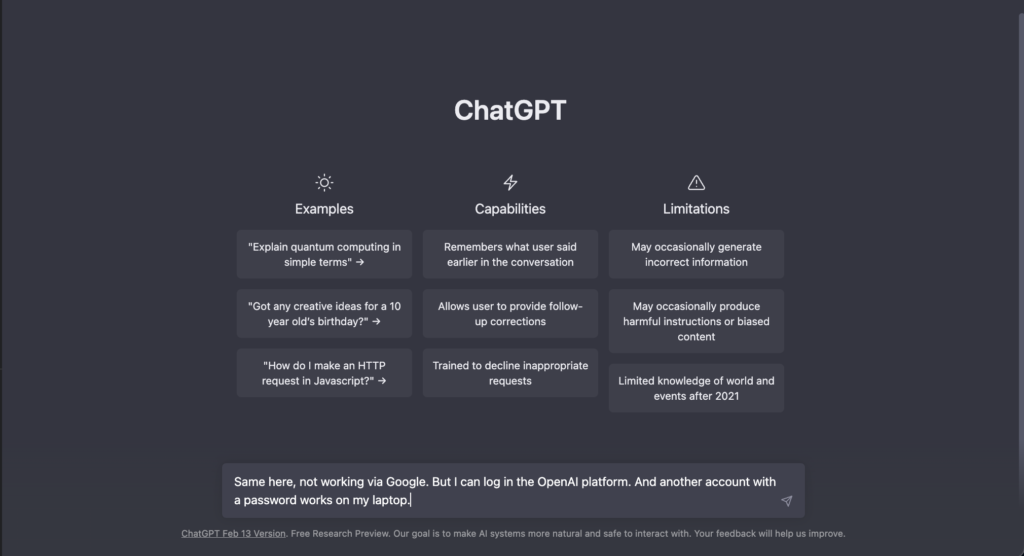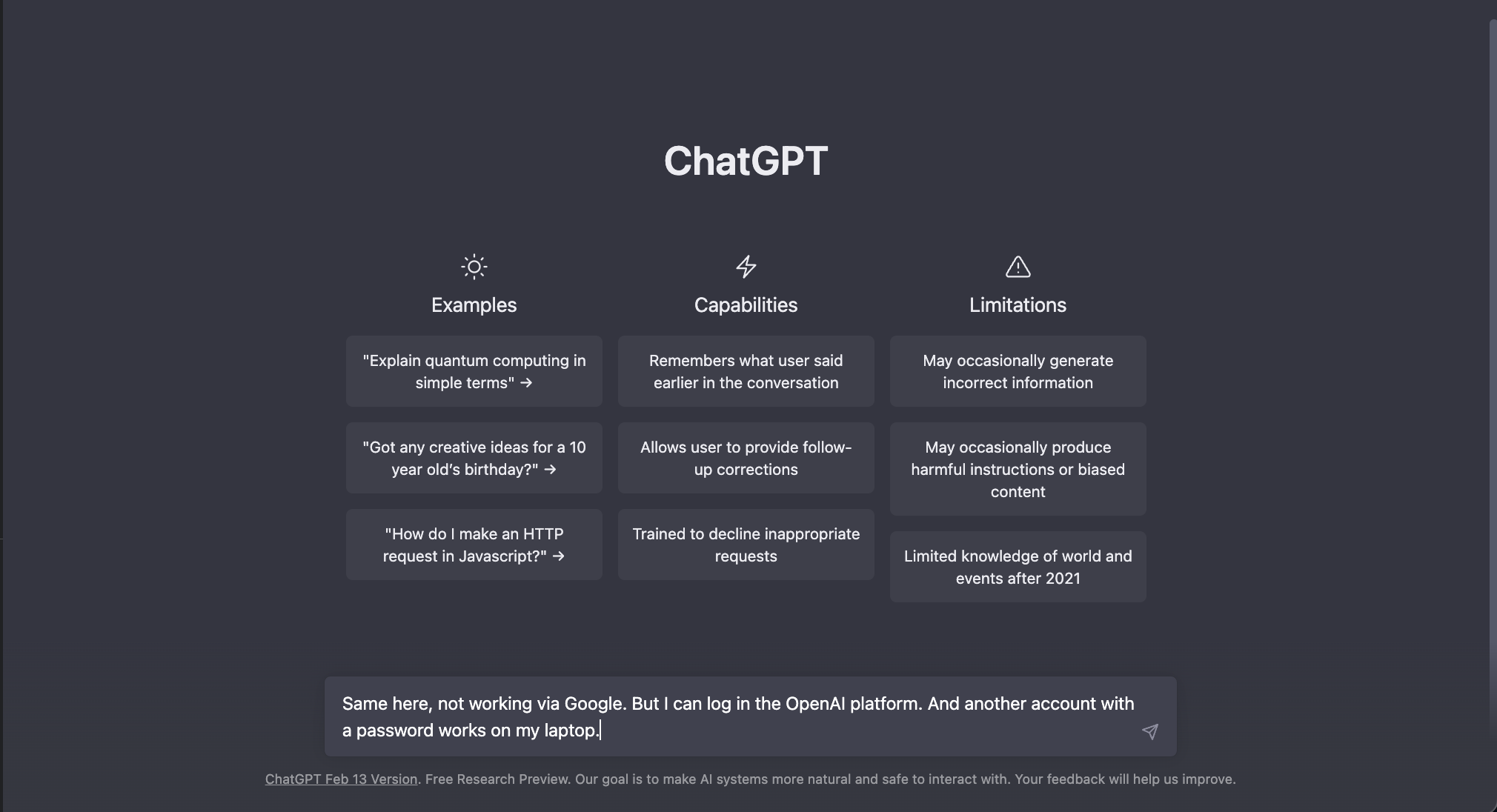The digital landscape is witnessing a seismic shift as ChatGPT enters the search engine arena, igniting what could become a prolonged battle with Google for supremacy over the AI-powered internet. Google, the long-standing giant of search, has made significant strides in artificial intelligence (AI) integration with tools like Bard and MUM. Yet, OpenAI’s bold move to release a search engine powered by ChatGPT’s advanced conversational abilities suggests a vision of a more interactive, user-driven search experience. This ambitious expansion signals not only a disruption in the search market but a potential redefinition of how users access, interpret, and interact with online information.
In this article, we’ll explore the trajectory of AI in search, dissect ChatGPT’s new capabilities, and examine how this development could affect Google’s dominance, digital marketing practices, and user expectations. Welcome to the new era of search, where AI, personalization, and conversational prowess could rewrite the rules of the internet.
1. Background The Rise of AI in Search
Over the last decade, AI has transformed search engines from simple information retrieval tools into sophisticated, user-responsive platforms. Google pioneered AI in search with its RankBrain and BERT algorithms, which use machine learning to better understand user intent and deliver more relevant results. Each new iteration of Google’s algorithm has focused on improving accuracy and context, making search results feel less like static lists and more like intuitive, personalized answers.
Enter ChatGPT: a platform that has already demonstrated its proficiency in natural language processing (NLP) and conversational AI. Before launching a search engine, ChatGPT gained a reputation as a robust AI chatbot, capable of generating human-like responses, holding coherent dialogues, and understanding nuanced questions. This background positions ChatGPT as a formidable new player in the search arena, particularly in its ability to deliver answers through a conversational format.

2. The Current State of AI Search Engines
Today, major tech players have integrated AI into their search engines to enhance accuracy, relevance, and user experience. Google’s AI advancements include Bard, an AI chatbot for complex queries, and the Multitask Unified Model (MUM), which interprets user needs across languages and media formats. Meanwhile, Microsoft has invested heavily in Bing, incorporating ChatGPT as a backbone for its enhanced AI capabilities.
While Google remains the dominant force, the AI revolution has prompted new contenders and innovations in search technology. The market now sees a growing number of AI-driven search tools like Neeva and You.com, which prioritize user privacy and personalized search experiences. ChatGPT’s entry into this ecosystem is a significant development, as it offers a direct challenge to both traditional and AI-augmented search engines.
3. ChatGPT’s New Search Engine: Key Features
ChatGPT’s search engine brings a unique suite of features that sets it apart from competitors. Unlike traditional search engines, which provide links to various websites, ChatGPT’s engine is designed to deliver conversational answers directly within the search interface. This approach eliminates the need to sift through multiple pages, presenting information in a way that feels intuitive and user-friendly.
Key Features
- Conversational Interface: Users can interact with the search engine like a chatbot, refining questions or seeking clarifications in real time.
- Personalized Responses: ChatGPT tailors answers based on user history and preferences, creating a more customized experience.
- Multi-Modal Capabilities: The platform promises potential integration of images, videos, and text within a single response, making searches more dynamic and visually engaging.
This new model shifts away from a traditional list of blue links, moving toward an AI-powered experience that understands context and delivers concise, accurate responses.
4. Comparing ChatGPT’s Search Engine to Google
When comparing ChatGPT’s new search engine to Google, the differences in design philosophy, user interaction, and AI implementation are striking. Google’s search engine remains a multifaceted tool with powerful indexing and ranking algorithms, continually optimized for speed, relevance, and SEO-friendly results. However, Google’s search format can feel rigid and lacks conversational fluidity.
In contrast, ChatGPT’s engine prioritizes user interaction, making it feel more like conversing with an intelligent assistant than browsing a list of links. Below are some key distinctions
- Response Format: Google serves as an informational aggregator, while ChatGPT delivers concise, conversational answers.
- User Interaction: ChatGPT allows real-time question refinement, whereas Google relies on keyword-based queries.
- Content Focus: Google’s priority is to provide broad information, while ChatGPT zeroes in on personalized, contextually relevant answers.
While Google has a larger infrastructure for indexing the web, ChatGPT leverages its AI strengths to create a more responsive, user-centered experience, appealing to those seeking fast and focused information.

5. Enhanced User Experience with ChatGPT’s Search
One of the standout features of ChatGPT’s search engine is its potential to transform user experience through conversational AI. This feature enables users to engage in a dialogue rather than merely inputting keywords, allowing a more natural progression of inquiry. Users can ask follow-up questions without rephrasing, creating an experience reminiscent of talking to a knowledgeable assistant.
The benefits are substantial
- Ease of Use: New users may find it simpler and more intuitive than traditional search interfaces.
- Efficiency: Users can ask complex questions and get detailed answers without needing multiple searches.
- Depth of Knowledge: Since ChatGPT synthesizes information rather than listing links, users may gain deeper insights and more comprehensive answers.
By addressing user questions directly within the search interface, ChatGPT’s engine creates an immersive experience that could redefine user expectations. This interaction-first approach aligns with modern preferences for personalized, efficient digital experiences, making ChatGPT a potential disruptor in the search engine market.
6. Data Privacy and Ethical Considerations
As AI-powered search engines gain popularity, data privacy and ethical considerations are top of mind. Users today are increasingly concerned with how their data is collected, stored, and used. Google has faced scrutiny over its data practices, as its business model relies heavily on targeted advertising, which requires gathering vast amounts of personal data. ChatGPT’s search engine, entering the market as an alternative, has the opportunity to build trust with users by emphasizing data privacy and ethical standards.
Key Privacy Features
- Minimal Data Collection: ChatGPT could differentiate itself by collecting only essential data, appealing to users wary of constant tracking.
- Transparent Data Use: By clearly stating how and why data is used, ChatGPT can establish greater transparency and trust with users.
- Anonymized Interactions: Unlike traditional search engines, an option for anonymous interactions could offer users more control over their data.
Ethics in AI search extends beyond privacy; it also involves addressing biases and ensuring fair treatment of information. ChatGPT’s AI, though advanced, must continuously learn to avoid algorithmic biases that might skew results based on race, gender, or socioeconomic factors. An ethical AI search engine would incorporate regular audits, adjust algorithms to mitigate biases, and ensure that the provided information is accurate and impartial.
7. Advantages of an AI-Powered Search Engine
An AI-powered search engine brings several advantages that could redefine how users interact with information online. AI-based search models, like ChatGPT’s, prioritize contextual relevance over mere keyword matching, leading to responses that are better aligned with user intent.
Core Advantages
- Faster, More Relevant Results: ChatGPT’s AI-powered engine understands complex queries, providing quick, relevant responses without requiring users to refine their search terms excessively.
- Reduction in Information Overload: Traditional search engines can overwhelm users with options. ChatGPT’s response-based model minimizes this, offering targeted answers rather than a list of links.
- Enhanced Accessibility: AI search engines can interpret voice commands, regional dialects, and casual phrasing, making information more accessible to a wider range of users.
These benefits could make ChatGPT’s search engine particularly appealing to users seeking efficiency, ease of access, and precision, marking a clear distinction from the more generalized results of traditional engines.
8. Potential Challenges ChatGPT May Face
As promising as ChatGPT’s search engine may be, it will likely encounter obstacles in gaining traction in a field dominated by Google. Here are a few key challenges:
- Building User Trust Google has been the primary search engine for years, with a well-established reputation. ChatGPT’s search engine will need to demonstrate consistent value, reliability, and credibility to convince users to make the switch.
- Brand Loyalty and User Habits Many users are deeply familiar with Google’s interface and may be resistant to change. Shifting user habits can take time, especially for those who rely on specific Google features.
- Technical Scalability Managing a large volume of search queries and producing high-quality results at scale could present technical challenges. ChatGPT will need to maintain accuracy and response speed as it scales to handle more users.
- Monetization Strategies While Google relies heavily on advertising, ChatGPT’s search engine may need alternative revenue streams. Maintaining a balance between revenue generation and a user-focused, privacy-conscious model could be difficult.
In overcoming these challenges, ChatGPT’s search engine will have to highlight its distinct value propositions and address the technical and operational demands of supporting a large-scale search platform.
9. Implications for Digital Marketing and SEO
ChatGPT’s entry into the search market could also bring changes to digital marketing and SEO. For years, SEO strategies have been optimized to align with Google’s algorithms, but an AI-powered search model like ChatGPT’s introduces a new paradigm. Instead of focusing solely on keywords, content creators might need to prioritize conversational language, context, and relevance.

New SEO Considerations
- Conversational Keywords: AI-based search engines interpret natural language, so marketers may shift to optimizing for conversational phrases rather than exact keywords.
- Enhanced Content Quality: AI models evaluate content based on relevance and user satisfaction. High-quality, well-researched content is likely to perform better.
- Content Formatting: Structured data, concise answers, and easy-to-read content could become even more crucial as AI search engines focus on delivering direct answers.
- User Intent Focus: Understanding and aligning content with user intent becomes paramount, as AI search engines focus more on providing complete, contextual responses.
By adapting to these changes, marketers can potentially gain an advantage on ChatGPT’s search engine, crafting content that aligns well with its AI-driven approach to search.
10. Impact on Content Creation and Quality Standards
With ChatGPT’s search engine prioritizing relevance and conversational responses, the impact on content creation could be profound. Content that resonates on an AI-powered platform will need to be conversational, engaging, and able to address complex queries succinctly. Unlike traditional search engines that index content by relevance to keywords, AI-powered engines assess content based on its potential to answer specific questions and engage users.
Content Quality Implications
- Greater Emphasis on Depth and Detail: Users may expect detailed answers rather than short, keyword-focused content, encouraging creators to produce well-rounded, informative articles.
- Conversational Tone: Writing in a conversational style can improve the likelihood of ranking well on AI search engines.
- Authenticity and Human Touch: AI-powered engines that value user engagement may reward content that feels authentic and personalized.
By elevating quality standards, ChatGPT’s search engine could encourage a shift toward more meaningful content, benefiting users and potentially making the internet a more insightful resource.
11. How Google is Responding to the Competition
As the leading search engine, Google has not stood still amid the rise of AI-powered competition. To maintain its dominance, Google is investing in advancements that integrate more AI capabilities into search, including its conversational AI, Bard, and the Multitask Unified Model (MUM), which interprets queries with increased depth and context.
Google’s Counter-Strategies
- Improved Conversational AI Google’s Bard and MUM offer more interactive search experiences, allowing users to explore complex topics more naturally.
- AI-Driven Search Enhancements Google continues to refine its search algorithms to deliver highly relevant results, aiming to meet user intent with precision.
- Focus on Trust and Reliability By prioritizing accuracy and ethical standards, Google positions itself as a trustworthy source for users concerned with misinformation or bias.
These efforts highlight Google’s commitment to evolving alongside AI technologies, ensuring it remains competitive while embracing the latest innovations in search.
12. The Future of AI in Search: What to Expect
Looking ahead, AI is set to become even more integrated into search experiences, offering tools that interpret complex inquiries, provide multimedia responses, and enhance accessibility. AI advancements could lead to multi-modal search capabilities that combine voice, visual, and textual data, making search engines more versatile and effective.
Future Trends
- Voice and Visual Search Integration AI could allow users to search through voice or image queries, expanding search methods.
- Hyper-Personalization By learning from user behavior, AI may tailor search results even more closely to individual preferences.
- Improved User Assistance AI-driven search engines may develop into full-fledged virtual assistants, capable of managing daily tasks, scheduling, and providing timely information.
With these trends in mind, it’s clear that AI will play an increasingly central role in shaping the way people interact with information online, fostering a more intuitive and responsive search experience.
13. Opportunities for Businesses and Website Owners
For businesses and website owners, ChatGPT’s search engine presents an opportunity to adapt their SEO strategies and stand out in a new digital environment. Companies that are quick to adapt to ChatGPT’s AI-driven search model may see increased visibility, engagement, and a competitive edge over others.
Potential Opportunities
- Enhanced Engagement: AI engines that favor conversational and interactive content can help businesses engage more deeply with users.
- New SEO Techniques: Optimizing for natural language, context, and user intent can help websites rank better on AI-powered search engines.
- Greater Accessibility: Businesses that create diverse content formats (text, images, and videos) can attract a broader audience.
By embracing these changes, companies can position themselves for success in the AI-driven internet landscape, capitalizing on new trends to build a loyal user base.
14. Risks and Rewards of Adopting AI Search Early
Adopting AI search engines early has its own set of risks and rewards for users and businesses alike. For those willing to embrace the shift, the potential benefits of early adoption may outweigh the challenges.
Pros of Early Adoption
- Competitive Advantage: Early adopters can position themselves as leaders in a new search paradigm.
- Improved User Trust: AI-powered search that emphasizes privacy and personalization can strengthen user trust and loyalty.
- SEO Pioneering: Companies can experiment with and refine SEO practices for AI search engines, setting a foundation for long-term success.
Cons of Early Adoption
- Uncertain Market Acceptance: If AI-powered search engines don’t gain widespread adoption, early adopters may not see a significant return on their efforts.
- Resource Investment: Adjusting to AI-focused SEO may require time and resources, which could be challenging for smaller businesses.
- Potential Learning Curve: As users adjust to conversational search, there may be a transitional period before they fully adapt.
By carefully weighing the risks and rewards, businesses can decide if an early shift to ChatGPT’s AI-powered search engine aligns with their strategic goals.



